 It’s a precarious world for Jewish girls — in addition to the angst of adolescence, they are at risk for depression, eating disorders and risky behavior. And Jewish girls, post-bat mitzvah, also often drop out of Jewish life.
It’s a precarious world for Jewish girls — in addition to the angst of adolescence, they are at risk for depression, eating disorders and risky behavior. And Jewish girls, post-bat mitzvah, also often drop out of Jewish life.
But, for 3,500 Jewish girls across North America, a program called “Rosh Hodesh: It’s a Girl Thing!” is helping. An experiential program developed during the past decade, it uses Jewish teachings and practices and offers 11- to 18-year-old girls a place to feel safe, articulate concerns and consider the impact of gender on their daily lives, as well as have fun and be “real” with their peers.
According to a newly released report, celebrated at a panel at The Jewish Federation of Greater Los Angeles, Rosh Hodesh is demonstrably impacting how these emerging teens see themselves, through both the lens of gender and Jewish identity.
“We knew there were problems that girls had to deal with,” said Deborah Meyer, executive director of Moving Traditions, the nonprofit that created and oversees the program. “We shouldn’t wait for girls to be in crisis and drop out; we should use Jewish teaching and values to help them develop into healthy young adults and give them a reason to stay connected.”
Currently, Rosh Hodesh groups are running in 26 states; Moving Traditions has regional directors operating in six cities (Boston, New York, Philadelphia, Chicago, Denver and Los Angeles). Groups meet monthly in age cohorts that can last through the end of high school; leaders explore with the girls issues such as body image, friendship, relationships, family, competition and stress.
At the L.A. Federation program, California Director Beth Tigay and Chief of Education and Program Rabbi Daniel Brenner presented the data, gathered from participants, group leaders and community partners, to determine long-term impact. “We were looking for proof of concept, but also to improve the concept, to think about how we might work more effectively,” Meyer said.
“Every group is different,” said Rabbi Yechiel Hoffman, who supervises Moving Tradition programs at Temple Beth Am. “Sometimes it’s ritual-based, sometimes it’s a processing space.” Bette Alkazian, group leader at Temple Adat Elohim, said her aim was to create an environment that was “the antithesis of school.” Shira Landau, speaking as leader of groups for Temple Beth Am and IKAR, noted that the “key component is the space and time to share, to feel like you’re not alone.”
Lyla Birnbaum, a past participant who has just finished her first year of college, credited Rosh Hodesh for developing her leadership skills. And high school junior Frankie Alchanati confessed that her mom had originally forced her to go, but the program was life changing. “I’ve made lifelong friends. It’s my own little ‘Dr. Phil’ show — whatever I need, they’re there for me.”
A group of 450 former Rosh Hodesh participants, with a median age of 18, responded to the survey administered by researchers Tobin Belzer in Los Angeles and Pearl Beck in New York City. Also surveyed were 160 group leaders and 50 professionals from partner organizations, and interviews were conducted with select alumni and professionals. The researchers learned that the program significantly strengthened girls’ self-esteem; empowered them to believe they can become agents of change for themselves, other women and other communities; and encouraged retention post-bat mitzvah.
“This project really crystallized for me how Jewish identity happens,” said Belzer, an applied sociologist of American Jews. “It happens in the articulation of what being Jewish means, so when you provide an opportunity for girls to think together about their Jewishness in the context of their lives and in contrast with their peers, you provide a powerful space for the cultivation of Jewish identity. Rosh Hodesh does this beautifully.”
Additionally, they found that most local participants weren’t aware that they were part of a national network. “The research gives Moving Traditions the opportunity to create a more vibrant national network of Rosh Hodesh participants and alumni,” Belzer said.
Rosh Hodesh has traditionally operated through community partnerships with synagogues, schools and community centers. But, in the fall, Moving Traditions is piloting a community group model in Los Angeles and Denver, aimed at the under-affiliated.
Since Tigay was hired last year, she said, she has “met everyone I can possibly meet in the Jewish community working with teens outside of institutions” to build the community group model. “I’m finding excited parents who may not want institutionalized Judaism or connection to a synagogue, but they do care about their children’s well-being, self-esteem and self-confidence.”
Tigay, an educator, teacher and administrator for 18 years, reported that, as of this year, L.A. proper has 58 Moving Traditions groups — 39 Rosh Hodesh groups and 19 groups of Shevet Achim: The Brotherhood, the Moving Traditions program that engages Jewish boys.
“L.A. is such a rich and robust community,” Tigay said, noting that one of her roles is to see “how we could fit our mission and goals into the needs of the city.”
Moving Traditions is part of the Jewish Teen Program Accelerator, supported through Federation’s Community-Based Jewish Teen Education Initiative, funded by the Jim Joseph Foundation and meant to support dramatic scaling of the region’s most innovative teen education programs. “The accelerator will open opportunities to collaborate with other organizations that we haven’t thought of yet,” said Tigay. “It’s a blast of innovative, creative people looking forward to exploring how to collaborate.”
Sixty percent of group leaders were in active contact with participants even five years after the program had ended, the research showed. “Choosing someone to create a safe space [and] have authentic conversations with teen issues often relating to gender is a critical component,” Meyer said, indicating that future research will explore the group leader’s role as mentor.
Although group leaders often are educators and teachers, Tigay said, social workers, lawyers, chefs, doctors, artists and actors also serve in this role. “Even though they’re not ‘in the business of teens,’ they want to help reach the teens. And it’s the adult in the room who can make or break it.
“I wish I had this as a teen,” said Tigay, who has two daughters. “It’s a gift to know that I’m doing something in an organization I love that’s making a difference.”
Download of report is here.
Source: “‘It’s a Girl Thing!’ helping to develop Jewish pride, identity,” June 3, 2015, Jewish Journal of Los Angeles
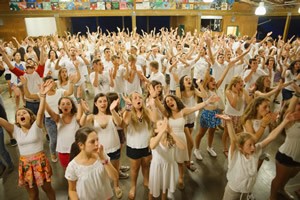 Building on the success of Specialty Camps Incubator I and II, Foundation for Jewish Camp and the Jim Joseph Foundation announced Incubator III, which will create four new Jewish specialty camps and continue the effort to achieve the joint vision of both foundations: to increase experiential Jewish learning, strengthen Jewish continuity, and foster strong Jewish social networks among Jewish children and teens.
Building on the success of Specialty Camps Incubator I and II, Foundation for Jewish Camp and the Jim Joseph Foundation announced Incubator III, which will create four new Jewish specialty camps and continue the effort to achieve the joint vision of both foundations: to increase experiential Jewish learning, strengthen Jewish continuity, and foster strong Jewish social networks among Jewish children and teens.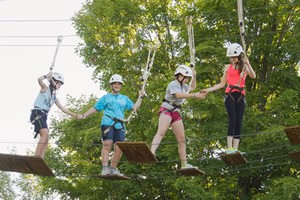 FJC expects these four new specialty camps will serve annually, in aggregate, 1,200 campers and 160 college-aged counselors by the conclusion of the grant period (December 2020, after three summers). The experienced Incubator team will provide expert training and mentoring to support the Specialty Camp Incubator III cohort as they plan and implement their vision for new models of Jewish specialty camps.
FJC expects these four new specialty camps will serve annually, in aggregate, 1,200 campers and 160 college-aged counselors by the conclusion of the grant period (December 2020, after three summers). The experienced Incubator team will provide expert training and mentoring to support the Specialty Camp Incubator III cohort as they plan and implement their vision for new models of Jewish specialty camps.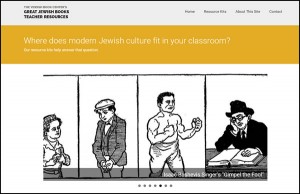
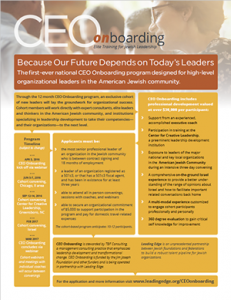
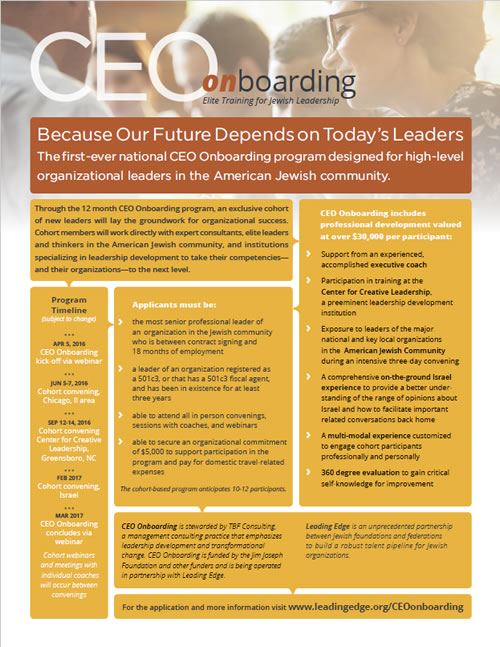
 Some 250 Jewish educators, educational leaders and funders spent three days in Las Vegas last month discussing and learning new strategies for teaching the subject of Israel to Jews in North America.And, in this case, the hope is that what happened in Vegas won’t stay in Vegas.
Some 250 Jewish educators, educational leaders and funders spent three days in Las Vegas last month discussing and learning new strategies for teaching the subject of Israel to Jews in North America.And, in this case, the hope is that what happened in Vegas won’t stay in Vegas.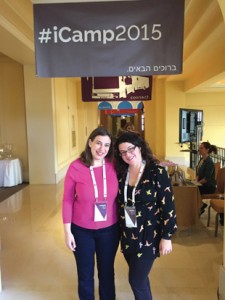
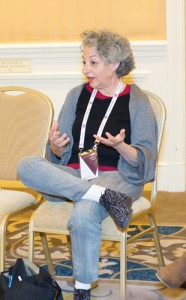
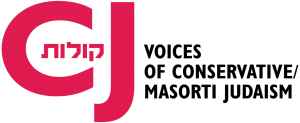 in building Jewish community.
in building Jewish community.
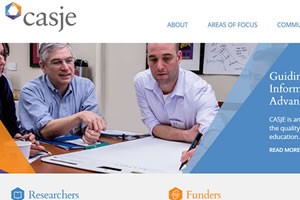
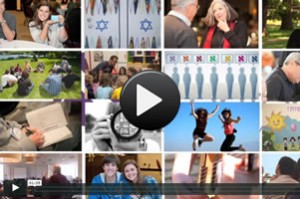
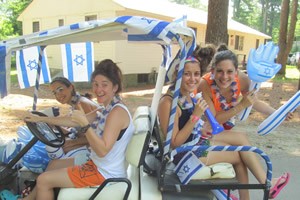 iCenter opportunities and initiatives continue to grow and expand. Its “Conflict Toolkit” is a sophisticated and nuanced approach to learning, discussing, and understanding Israel in conflict. The
iCenter opportunities and initiatives continue to grow and expand. Its “Conflict Toolkit” is a sophisticated and nuanced approach to learning, discussing, and understanding Israel in conflict. The  It’s a precarious world for Jewish girls — in addition to the angst of adolescence, they are at risk for depression, eating disorders and risky behavior. And Jewish girls, post-bat mitzvah, also often drop out of Jewish life.
It’s a precarious world for Jewish girls — in addition to the angst of adolescence, they are at risk for depression, eating disorders and risky behavior. And Jewish girls, post-bat mitzvah, also often drop out of Jewish life.